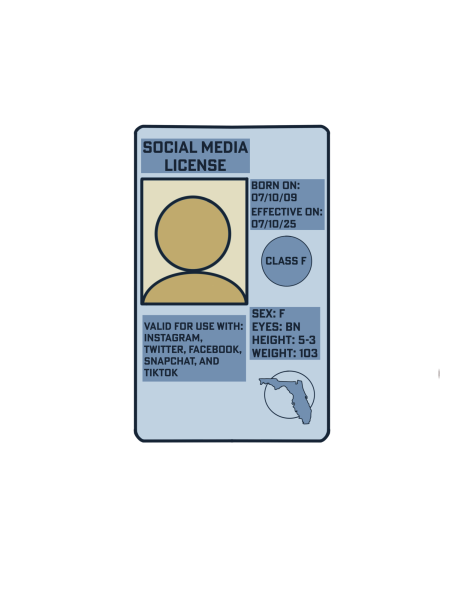ACCEPTANCE ANXIETY – College entry rates grow increasingly exclusive
Senior Mackenzey Kologlu took a chance when she attended a Colorado State University informational session during her sophomore year. Interested in the wildlife veterinary program, she set her eyes on applying to the university.
“I had never been to one of the college information sessions before, and I heard they had a vet program, so I thought, ‘Why not do one and see,’” Kologlu said. “It was a complete chance for me. And if I hadn’t gone there, who knows where I would be going now.”
Kologlu said her eight hundred volunteer hours at Brevard Zoo as a member of the Zoo Teen Program helped her to stand out among applicants, because she focused on a particular passion.
“I know a bunch of people who are incredibly intelligent and had incredibly high grades and tests scores that didn’t get into their top choices,” Kologlu said. “I think your essays tell colleges who you are, and it’s a balance between being competent in your writing, but not cocky. You don’t want to tell [colleges], ‘You have to choose me,’ but, ‘If you don’t choose me, it will be a mistake on your part because I’m a dedicated student.’”
Kologlu said the extensive and oftentimes draining college application process may also lead students away from applying to schools that they otherwise may have been accepted to.
“I was originally applying to Clemson,” Kologlu said. “But when I found I had to type out my transcript, they kind of slid off my list of colleges. I was not about to do seven more essays and type out my entire transcript after everything. So there definitely were some things where it was really hard to continue. But I wanted to get all of my applications in. So I did the schools I really wanted to go to first. It’s definitely been a mental struggle with will power kind of lacking.”
Kologlu was accepted to all eleven colleges she applied to, and in early December she committed to Colorado. But many of Kologlu’s peers did not meet a similar fate, as the college acceptance rate appears to be increasingly exclusive. Senior Chris Jenkins was not accepted to his top university choice: the University of Florida.
“I was very emotional and I kind of just broke down for the entire night,” Jenkins said. “I was pretty confident about [getting in].”
Jenkins, who plans on majoring in computer science, said he wrote an appeal to UF outlining the reasons he should be accepted to the university. The admissions office looked over the appeal and denied it. Jenkins committed to UCF.
“I heard from one of the admissions officers that one reason I didn’t get accepted into UF is because compared to other people at West Shore, my GPA wasn’t as high,” Jenkins said. “At a lot of other schools my GPA would be around the top.”
Jenkins participated in the Academic Team, Mu Alpha Theta and Latin Certamen. He volunteered for Morgan’s Place, the Sea Turtle Preservation Society, the Suntree library, and the Children’s Hunger Project. Despite extracurricular participation and getting involved in his community, Jenkins said he believes not having a 4.0 GPA is a main reason he did not get accepted to UF.
“Early on, I couldn’t get a 4.0,” Jenkins said. “In ninth grade I already messed that up because I started with a C in English. That already stopped me from getting a 4.0. That kind of discouraged me a bit.”
Additionally, Jenkins accidentally sent his SAT score of 1460 to the University of Georgia instead of UF. His ACT score of 34 was included in the application.
“My SAT score is above average, I have a decent GPA, I have a really good ACT score and I’ve done a good amount of volunteering,” Jenkins said. “Apparently that’s still only the top end of average for people who got accepted to UF.”
Forty-four seniors from the Class of 2021 were accepted to UF. Thirty-four will be joining the Gator Nation in the fall.
“I went to [UF] straight out of Cocoa High School,” Director of Guidance Mike Drake said. “[I] never took an AP course. Didn’t know what an AP course was. We didn’t have any AP courses. I just applied and went and got in. That was in the early 80s. When I started working at Cocoa Beach [High School] in the mid-90s, I could not believe the quality of students that were not getting into UF, and it’s only gotten worse now.”
Drake, who acts as testing coordinator and assists with college applications, regularly converses with college representatives and attends meetings to understand what colleges look for in their applicants.
“There’s a bunch of students here who have great academic credentials, they’ve taken challenging coursework, they have great grades, they have great test scores,” Drake said. “What separates them in an admissions process where a school has five to ten percent of students getting in? It’s the voice of the application. [Colleges] want to see a commitment to something. They can see right through a student who had thirty things on their application but isn’t really devoted to any of them. Oftentimes students think, ‘Oh, I have to have all these different things.’ They’ll play a sport for one year just to say they played a sport. They’re not looking for that, they’re looking for things that you’re
generally interested in and committed to.”
But when it comes to the belief that college acceptance is becoming more competitive, Drake said the decision most schools made this year to have test score optional applications was a double-edged sword.
“Initially when you hear that you think, ‘Oh, that’s going to make it easier. It’s going to be better for everybody,’” Drake said. “But that has caused more students to apply. The number of applications is up. So actually, it hasn’t really gotten easier by taking the test score option away.”
Drake said that the stress and disappointment surrounding college acceptance is due to pressure students feel regarding getting into their “ideal” school.
“I think in the end, we’re getting a little too obsessed with where we go to college,” Drake said. “And I don’t think it’s as important as we think it is. Oftentimes that prestige of, ‘Oh, I have to graduate from this school or otherwise I won’t be as competitive,’ I think that’s overplayed a lot.”
Regardless of college acceptance results, Drake said students should not “be so upset,” because in the end, their college experience will work out.
“When I first started working in schools twenty-six years ago, there was an older gentleman who was my mentor,” Drake said. “One of the things he said was, ‘Wherever you go, there you are.’ You’re not going to be a different person because you didn’t get into UF, or you didn’t get into Harvard or you didn’t get into MIT. You’re still going to be the same person wherever you go. So start with that perspective and don’t be so distraught about not getting into your college of choice. It’s become so competitive that it’s crazy now.”
This is my third year on the "Roar" staff and my second year as editor in chief. I enjoy covering social and political issues and hope to cover international...

